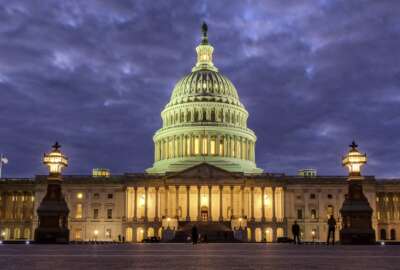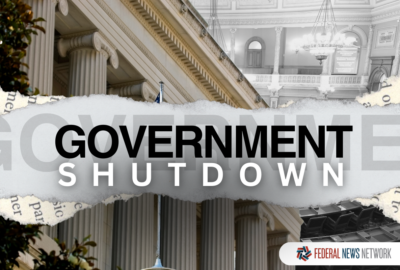Trump-Pelosi showdown over shutdown first battle of new era
Showdown between Trump and Pelosi could set the tone for divided government in the coming months
WASHINGTON (AP) — Nancy Pelosi often quotes Abraham Lincoln saying public sentiment is everything. It’s a theory that will be put to the test when the new House Democratic majority gavels in this week and votes to end the government shutdown without money for President Donald Trump’s border wall with Mexico.
The high-stakes move to reopen the government will be the first big battle between Trump and Pelosi as Democrats come into control ready to reassert the power of the legislative branch and confront the White House.
Trump is counting on public support as he holds out for $5 billion to build the wall. He’s signaled he’s in no rush to give up on a signature campaign issue as he launches his own re-election bid in 2020. But Pelosi just as strongly believes the public will be on Democrats’ side as they try to get government working again, and move on to health care and other priorities — including oversight of the White House.
As the shutdown drags into a second week, shuttering popular Smithsonian museums and creating hardship among some 800,000 federal workers, the stalemate is fast becoming a test of wills rarely seen when Republicans had monopoly control of government in Washington.
“We’re going to do our job,” said Rep. Jim McGovern, D-Mass., the incoming chairman of the Rules Committee, vowing to pass legislation to re-open government. “The president should take ‘yes’ for an answer and go back to tweeting.”
As Republicans relinquish their hold on Congress, and House Speaker Paul Ryan gives up the gavel, the White House is eager for a showdown with Pelosi believing the crisis will tarnish the opening of the new legislative session, and with it, her expected return to the speaker’s office.
Trump is committed for the long haul, according to administration officials unauthorized to speak publicly and granted anonymity. After early threats to shut down government over the wall, he now believes he’s got public opinion and, at very least, his base of supporters behind him.
The president has not said he would veto the Democratic legislation, if it lands on his desk. But the idea of clouding Pelosi’s speakership only emboldens Trump, the officials said. A prolonged crisis could hobble House Democrats’ ability to launch their agenda, which includes investigations of the president and oversight of his administration, including Russian interference in the election.
Rather than reach out for negotiations, the president has been holed up at the White House, tweeting. “Veterans on President Trump’s handling of Border Security – 62% Approval Rating,” Trump tweeted Sunday, referring to AP VoteCast, a nationwide survey of more than 115,000 midterm voters — including more than 4,000 current and former service members — conducted for The Associated Press by NORC at the University of Chicago. It found that veterans overall approved of Trump’s job performance, but women, the fastest growing demographic group in the military, defied that trend with a majority disapproving of him.
Other Republicans, though, are more wary of the White House’s approach. Sen. Richard Shelby of Alabama, the chairman of the Appropriations Committee, said Sunday a prolonged standoff only makes all sides look “silly.”
“If we blame each other, this could last a long, long time,” Shelby said on CBS’ “Face the Nation.” ”It’s not a question of who wins, who loses … Nobody wins in a shutdown, we all lose.”
Pelosi, meanwhile, shows no signs of wavering, eager to both re-open government and to launch the Democratic agenda.
When the House gavels open Thursday, one of the first votes will be on Pelosi’s return as speaker. The California Democrat is confident she has the support needed to win.
Democrats in the House are preparing three legislative options to keep government running Day One, aides said. One would be a temporary measure, similar to the Senate-passed bill before Christmas, to keep border security at existing funding levels, $1.3 billion, and re-open government through Feb. 8, but no money for the wall. The others would also keep border funds at current levels, without wall money, but for the remainder of the fiscal year, though Sept. 30.
On the other side of the Capitol, Senate Minority Leader Chuck Schumer has shown little daylight with Pelosi, and has been able to hold Democrats together, effectively neutralizing the White House’s attempt to split his ranks, even after their November losses in the Senate.
Schumer immediately began approaching Democratic senators after the midterm election to hear their views on Trump’s $5 billion demand for the wall, according to a person familiar with the talks but unauthorized to speak publicly. He quickly learned that even the most vulnerable senators from states Trump won in 2016, while favoring border security, did not want to spend the money on the wall.
One red-state Democrat, Montana Sen. Jon Tester, said Sunday that Trump campaigned on having Mexico pay for the wall, but if the president is now saying, “We’re still going to build the wall, but were going to have the American taxpayer pay for it — we’re going to use the American taxpayer like an ATM machine — that’s not the direction to go.”
Republicans, who will still control the Senate under Majority Leader Mitch McConnell, have not signaled their next move. They have largely left the negotiations to Trump and Democrats, and it’s unclear if McConnell would consider any of the bills the House, under Pelosi, could pass.
Republican senators are eager to get back to confirming Trump’s judicial nominees, and they say they don’t want to consider any more shutdown legislation unless they know Trump would sign it into law, after the president rejected their Senate-passed bill.
House Democrats are pushing forward with other priorities in the first weeks of the new Congress, including a Rules package that will impose new transparency and oversight on legislative operations — including a requirement that all bills be considered in committees before coming to the floor for votes. They’re also planning early moves on health care, including a resolution to fight the legal challenge to the Affordable Care Act, known as Obamacare.
Rep. Lucille Roybal Allard, D-Calif., the incoming chairwoman of the appropriations subcommittee that handles Homeland Security, said in an interview that her office is preparing legislation to keep government running and moving forward.
“Our goal is to make sure we move on our promises,” she said, noting that the public has “tremendous influence on what happens” in Washington.
And if the shutdown drags into the new Congress? “I don’t even want to think about that.”
___
Associated Press writer Zeke Miller in Washington contributed to this report.
Follow Lisa Mascaro on Twitter at https://twitter.com/lisamascaro
Copyright © 2024 The Associated Press. All rights reserved. This website is not intended for users located within the European Economic Area.






